

Heart & Hand an early childhood workshop series

Social Emotional Development (Heart) and Hands-On Experiences (Hand) are the foundation of Early Childhood Learning. With this as our theme, Wellan Institute has designed a series of workshops which o er tools and strategies for supporting children’s growth through both the Heart and Hand. Sessions will focus on real-world strategies for guiding children, particularly ages 15 months to 6 years, in ways that support their independence, confidence, and curiosity.
Saturday, November 1, 2025
8:30 AM to 3:00 PM Conference Registration: $75
MA 02459
Wellan Montessori School 80 Crescent Avenue Newton,
Information
There are so many conferences in and around Boston, but none o er this type of Montessori-inspired, hands-on opportunity for educators and parents to get more actively and joyfully involved in young children’s lives. Heart and Hand is an early childhood workshop series that contains inspiring, bite-sized sessions designed to equip adults with practical strategies that can be put to use right away.
Audience & Accreditation
This dynamic event will feature informative presentations and interactive sessions designed to address the varied needs and interests of adults who spend time with children ages 2-6.
Sessions are catered specifically to classroom teachers and assistants, daycare professionals, in-home caregivers, parents, and grandparents. College students interested in preschool education are also welcome.
5 Professional Development (PD) Hours and 0.5 Continuing Education Units (CEUs) are available to participating attendees through IACET. Please note that any participant requesting CEUs or PD hours must complete the end-of-day learning assessment.
Registration
Scan below to register. Conference registration costs $75, and includes:
• Access to All Workshop Sessions
• Co ee, Refreshments, and Lunch
• Learning Materials
• Certificate of Attendance
• 0.5 CEUs / 5 PD Hours
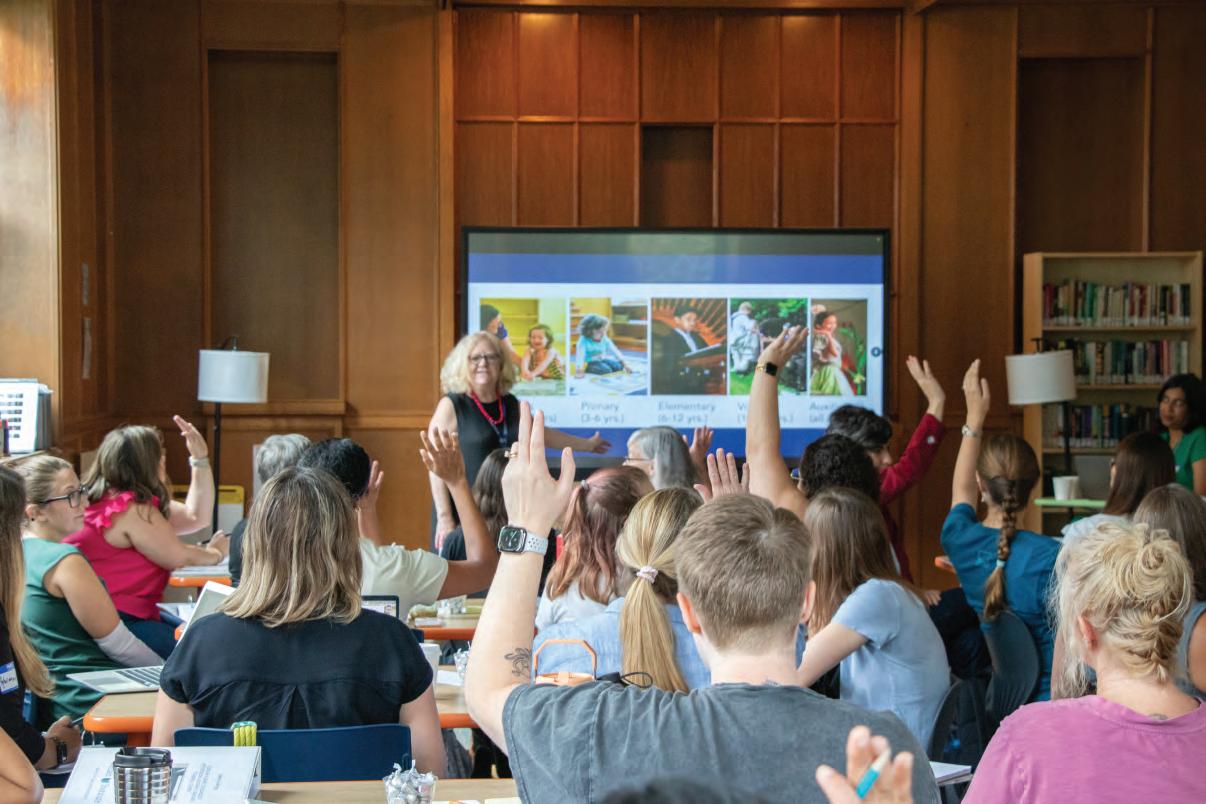
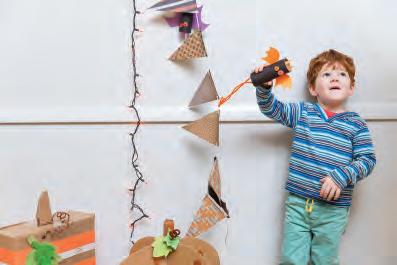

8:15 AM
8:30 AM - 8:55 AM
8:55 AM - 9:00 AM
9:00 AM - 9:45 AM 9:50 AM - 10:45 AM 10:50 AM - 11:45 AM 11:45 AM - 12:15 PM 12:20 PM - 1:15 PM 1:20 PM - 2:15 PM 2:15 PM - 2:30 PM
2:30 PM - 3:00 PM
Schedule
Early Check-In
Check-In / Co ee & Mingling
Meet and mingle while you enjoy a cup of co ee and light breakfast refreshments
Welcome
Presented by Priya Venkateswaran, Director of Wellan Institute
Opening Keynote
The Importance of Social-Emotional and Hands-on Learning
Presented by Beth Black, Head of Wellan Montessori School
Morning Session 1 (choose one of three)
Toddlers in Motion: Active Play with Safe Limits with Kayla Sti er A Practical Foundation: Skills that Increase Independence with Priya Venkateswaran Too Loud, Too Quiet: When Sensory Needs Drive Behavior with Beth Black
Morning Session 2 (choose one of three)
Small People, Big Feelings: Managing Challenging Behavior with Amanda Cusanno Your Calm is Their Calm: Co-regulation Strategies with Jen Cardy Teaching Mindfulness and Gratitude with Priya Venkateswaran and Fiona Gohery
Lunch & Learn (choose one of three)
Boxed lunches provided by Wellan Institute Inside Montessori Training a short presentation followed by Q&A Montessori in Lower Elementary a short presentation followed by Q&A Informal Networking share ideas and experiences with other Heart & Hand attendees
Afternoon Session 1 (choose one of four)
When Nature Calls: Supporting Bathroom Independence with Elyse Kalins Culturally Responsive Children’s Books with Sachi é Karmacharya and Elisabeth Gomez
Your Words Matter with Ana Marban-Lorenzo Partnering with Parents: E ective Teacher Communication with Beth Black
Afternoon Session 2 (choose one of three)
The Building Blocks of Art: Activities for Young Artists with Vanessa Irzyk Early Engineering: Tinkering with Recycled Materials with Merav Rosen Threading Creativity: Sewing for Young Learners with Sandra Fernandes and Priya Venkateswaran
Closing
Prizes, course evaluations, and goodbyes
Learning Assessments
Required for those requesting CEUs and PD Hours
Workshops
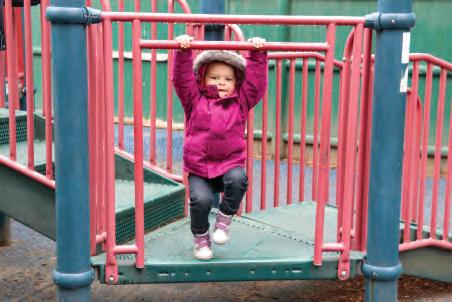
Toddlers in Motion: Active Play with Safe Limits
KAYLA STIFFLER | for parents or teachers of children under 3
Toddlers are wired to move — climbing, running, exploring, and testing boundaries are all part of how they learn about their world. This session explores how adults can nurture that natural drive for active play while also creating safe, structured environments and setting behavioral limits. We’ll discuss how movement supports physical, cognitive, and emotional development, and share strategies for guiding energetic toddlers without constant “no’s.” Whether you’re at home or in the classroom, you’ll leave with ideas for simple activities, ways to design safe spaces, and tips for setting clear, consistent limits that allow children to explore freely while staying protected.
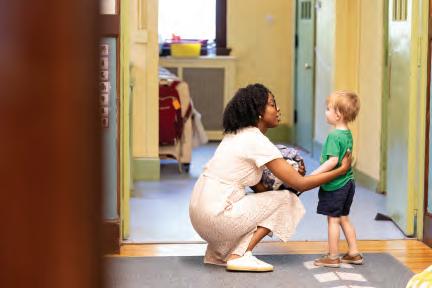

A Practical Foundation: Skills that Increase Independence
PRIYA VENKATESWARAN | for parents or teachers of children 3-6
Young children are eager to do things for themselves, and with the right guidance, everyday tasks become opportunities for learning and confidence building. This session focuses on how to intentionally teach real-life skills that foster independence, from dressing and caring for themselves to helping with household or classroom tasks. We’ll explore how these practical experiences teach problem-solving skills, develop self-esteem, and support concentration, coordination, order, and independence. You’ll leave with concrete strategies, activity ideas, and language tools to nurture capable, confident children.

Too Loud, Too Quiet: When Sensory Needs Drive Behavior
BETH BLACK | for parents or teachers of children 2-6
Disruptive or inattentive behavior can impact both academic learning and social relationships. Often these behaviors are rooted in a child’s sensory profile, which is based on reactions to sounds, textures, movement, or other sensations. This session explores how sensory processing influences children’s actions, emotions, and ability to engage in daily routines. We’ll discuss practical ways to support regulation — from adjusting the environment to o ering the right kinds of sensory experiences. Whether a child seeks extra input or avoids certain sensations, you’ll gain strategies to respond with empathy and create spaces where every child can feel calm, focused, and ready to learn.


Workshops


Small People, Big Feelings: Managing Challenging Behavior
AMANDA CUSANNO | for parents or teachers of children under 3
Your sweet toddler is suddenly screaming, all because you poured juice into a green cup instead of the blue cup. Your student loses it because another child picked up a nearby toy. Now what?! In this session, we will explore the underlying causes of challenging behaviors, including task frustration, communication di culties, and the growing need for independence. You will learn practical, evidence-based techniques to promote positive behavior, set clear expectations, and implement consistent discipline strategies.
Your Calm is Their Calm: Co-regulation Strategies
JEN CARDY | for parents or teachers of children 3-6
Wondering how such a darling child can push all your buttons? Struggling with meltdowns, power struggles, or moments of non-compliance? Self-regulation in children refers to their developing ability to regulate their emotions, thoughts, and behavior. Between the ages of 3-6, children are eager to take on learning challenges and make new friends. However, they don’t yet have the skills to manage the big feelings that emerge when they become frustrated or disappointed. This workshop explores the role of the caring adult in using co-regulation strategies to support children as well as ways to help them learn to self-regulate.

Teaching Mindfulness and Gratitude
PRIYA VENKATESWARAN & FIONA GOHERY | for parents or teachers of children 3-6
Happiness often begins with simple, intentional choices. In this session, you’ll explore how asking just one powerful question can help young children reflect on their wide range of emotions and the choices they make. By nurturing mindfulness and gratitude early on, you can help children learn to “think before they leap,” guiding them toward actions that are kind, healthy, and aligned with what truly makes their hearts happy. Since children tend to receive the most attention when they are expressing negative emotions, these shared moments focused on positivity provide an important balance and anchor the adult-child relationship in joy.
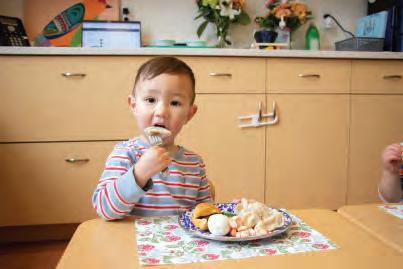
Lunch & Learn Mini Sessions
INSIDE MONTESSORI TRAINING | for educators interested in becoming Montessori-certified
A short presentation by Wellan Institute Faculty, followed by Q&A.
MONTESSORI IN LOWER ELEMENTARY | for interested parents of children under 6
A short presentation by Wellan Montessori School Teachers, followed by Q&A.
INFORMAL NETWORKING | for everyone
Share ideas and experiences over lunch with other Heart & Hand attendees.
Workshops

When Nature Calls: Supporting Bathroom Independence
ELYSE KALINS | for parents or teachers of children 15 months - 3 years
The toilet learning methods practiced in Montessori classrooms take into consideration modern research as well as tried-and-true methods. Come learn about how you can be supporting the children in your life in their toilet learning, as well as how becoming independent in toileting contributes to a child’s confidence and positive self-perception. We’ll focus on how to foster independence in self-care tasks related to toilet learning, how to handle power struggles related to potty training, and some step-by-step practices that foster toileting independence.
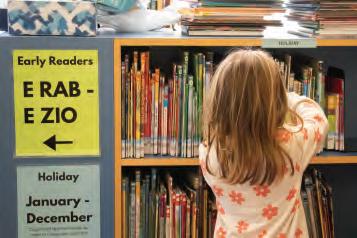
Culturally Responsive Children’s Books
SACHI É KARMACHARYA & ELISABETH GOMEZ | for parents or teachers of children 2-6
Young children are observant and curious. They notice di erences in skin color, gender expressions, family structure, religion, or cultural celebration. The right book can help them make sense of the diversity they see around them, as well as introduce them to cultures and lifestyles unlike their own. If you’re interested in building a library of picture books that can help young children better understand and appreciate their own and others’ identities, this is the session for you!



Your Words Matter
ANA MARBAN-LORENZO | for parents of children 3-6
The words we choose — and how we say them — play a powerful role in shaping children’s self-image, behavior, and emotional growth. But what are the “right things to say” to praise or reprimand a child? In this session, you’ll learn practical language strategies that build cooperation, foster emotional regulation, and strengthen your connection with your child. Together, we’ll explore ways to use words intentionally to reinforce positive choices, redirect challenging behaviors, and create a more peaceful, responsive environment at home.
Partnering with Parents: E ective Teacher Communication
BETH BLACK | for teachers
Strong partnerships between teachers and families are built on clear, compassionate, and confident communication. This session o ers practical tools and strategies to help educators navigate conversations with parents — from everyday updates to more sensitive discussions about behavior, development, or learning needs. We’ll explore ways to build trust, listen actively, and share observations in ways that invite collaboration rather than defensiveness. Through real-world examples and language tips, you’ll learn how to approach challenging conversations with confidence and create ongoing dialogue that strengthens the home–school connection and supports every child’s growth
Workshops
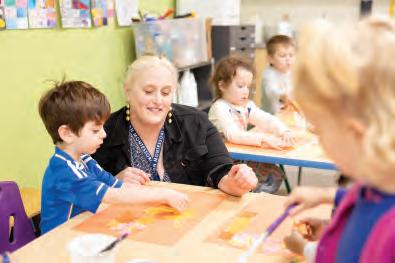
The Building Blocks of Art: Activities for Young Artists
VANESSA
IRZYK | for everyone
Young children love to express themselves by making art through open-ended exploration with di erent artistic media. As adults, we can build on their natural curiosity to introduce them to famous artists and demonstrate how di erent artistic elements create impact.
The seven “building blocks” of art are: line, shape, form, space, texture, value, and color. Artists use these elements to express themselves and communicate ideas through their artwork. In this session, we will explore ways to incorporate the fundamental elements of art and art appreciation into activities that children enjoy.


Early Engineering: Tinkering with Recycled Materials
Creating a tinkering tray is a great way to introduce young children to STEAM (Science, Technology, Engineering, Art, and Math). Tinkering trays encourage children to explore and create in an open-ended way. Having a limited set of varied materials to manipulate and put to use in your own way fosters independence, problem-solving, creativity, and decision-making.
Learn how to easily create your own tinkering tray for use in a class or home environment.



Threading Creativity: Sewing for Young Learners for everyone
Sewing is more than a practical skill — it’s a rich, hands-on way for young children to develop focus, coordination, problem-solving, and creativity. This session introduces simple, age-appropriate ways to bring sewing into early childhood settings, even with little or no prior experience. We’ll explore how sewing supports fine motor development and independence, discuss how to prepare a safe and inviting sewing space, and share easy first projects that spark joy and confidence. Whether stitching by hand or using basic tools, you’ll leave with ideas to weave creativity into everyday learning and empower children to take pride in making something with their own hands.
the wise choice for montessori training



